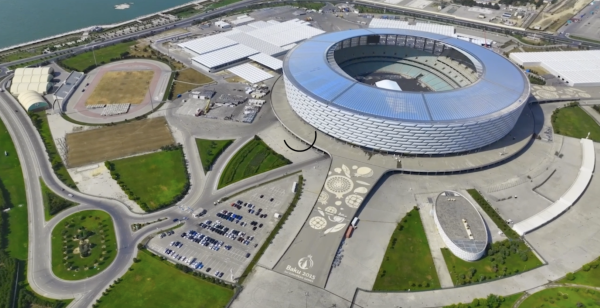The upcoming UN climate change meeting, COP29, will feature a dedicated Health Day on 18 November in Baku, Azerbaijan, as part of the negotiations from 11-22 November. The World Health Organization (WHO) aims to ensure health is a central focus in climate talks.
Maria Neira from the WHO emphasized two key objectives: raising awareness that the climate crisis is a health crisis and showing how mitigating climate change can bring significant health benefits. Neira stressed the need to integrate health into all climate actions.
The Health Day will begin with a high-level meeting on the Baku Initiative on Human Development for Climate Resilience, focusing on strengthening education, health, social protection, and green jobs. COP29 will also host food, agriculture, and water events, all with health implications. A One Health roundtable on 19 November will explore the interconnectedness of human, animal, and environmental health.
Additionally, in partnership with the Wellcome Trust, the WHO will host a Health Pavilion, showcasing initiatives that place health and equity at the centre of climate solutions. This effort highlights the vital role of health in combating climate change and aims to create resilient, healthy communities worldwide.
Also, the UN’s COP29 climate summit in Baku, Azerbaijan will focus on climate finance and raising funds for developing countries affected by the climate crisis.
What was agreed at COP28 last year?
ALSO READ Mathematicians create ‘model of everything’ – from gut microbes to climate change
After a damning verdict from the first-ever Global Stocktake (an assessment of how on track countries are to fulfil 2016’s Paris Climate Change Agreement), countries at the climate summit in Dubai renewed their commitments to reduce greenhouse gas emissions.
For the first time in 28 years of negotiations, nearly 200 countries agreed to “transition away” from fossil fuels. COP28’s president, Sultan Al-Jaber, applauded the move as “historic”, but the devil is in the detail.
Countries arguing for a “phase out” of fossil fuels were met with resistance from a coalition of petrostates – including Saudi Arabia and Russia – who ensured that the text of the final pledge was diluted.
In the absence of an explicit call for a “phase out” (or even the less stringent “phase down”), and with no legally binding document in play, the fossil fuel industry still has plenty of leeway to continue with business as usual.
For example, a Global Witness investigation found that ADNOC (the United Arab Emirates’ state-run petrochemicals company, which Al-Jaber steers as CEO), sought up to $100 billion of fossil fuel deals in UAE’s year as COP28 host – a four-times increase in its dealmaking the year before.
Leaders at the climate summit also agreed on a net zero food plan, which would see the world’s food systems overhauled to become a carbon sink by 2050.
Yet, the declaration failed to mention the role of agriculture in driving over 90% of tropical deforestation.
What will be discussed at COP29 this year?
Dubbed the “finance COP”, a core theme of COP29 will be dramatically scaling up every country’s climate ambitions – and finding the necessary funds to pay for them.
Four keywords will dominate negotiations at Baku’s climate summit: loss, damage, adaptation and mitigation.
These refer to the four pillars of climate action, where countries fund new infrastructure to protect people against the worst effects of climate change, transition to new net zero technologies and systems, and, where those adaptations fail, pay for recovery from climate-related disasters.
Summit host Azerbaijan has named several priorities focused on raising funds to enable climate action:
- A New Collective Quantified Goal on climate finance: In 2009, delegates reached a landmark agreement to raise $100 billion by 2020, which would help climate-vulnerable countries adapt to the challenges of the climate crisis. A new target will be set this year in Baku based on the evolving needs of these nations.
- Fund for Responding to Loss and Damage: The loss and damage fund will help low-income countries pay for recovery from climate-related disasters, which no amount of mitigation or adaptation could have prevented. Given the potential overlap with the New Collective Quantified Goal, which also covers loss and damage, COP29 will see countries debate what specifically the Fund for Responding to Loss and Damage should respond to.
- Updated National Determined Contributions (NDCs): Crucial to staying within the Paris Agreement’s 1.5C global heating threshold are each country’s efforts to reduce their greenhouse gas emissions, known as NDCs. Every five years, countries must submit revised NDCs to the UNFCCC secretariat, adapting their projected targets and actions to the evolving climate emergency. Baku will be an opportunity for countries to collectively think bigger before they resubmit in 2025.
- Article 6 of the Paris Agreement: Countries will debate the details of how to meet their climate goals through non-market and market-based solutions, particularly the carbon tax credits market. At COP29, nations will discuss how to regulate carbon credits. Some prefer a less restricted market, while others advocate for stronger rules to ensure transparency and protect human rights. These decisions will be crucial in shaping climate finance and global climate action.
With additional reports from Global Witness


